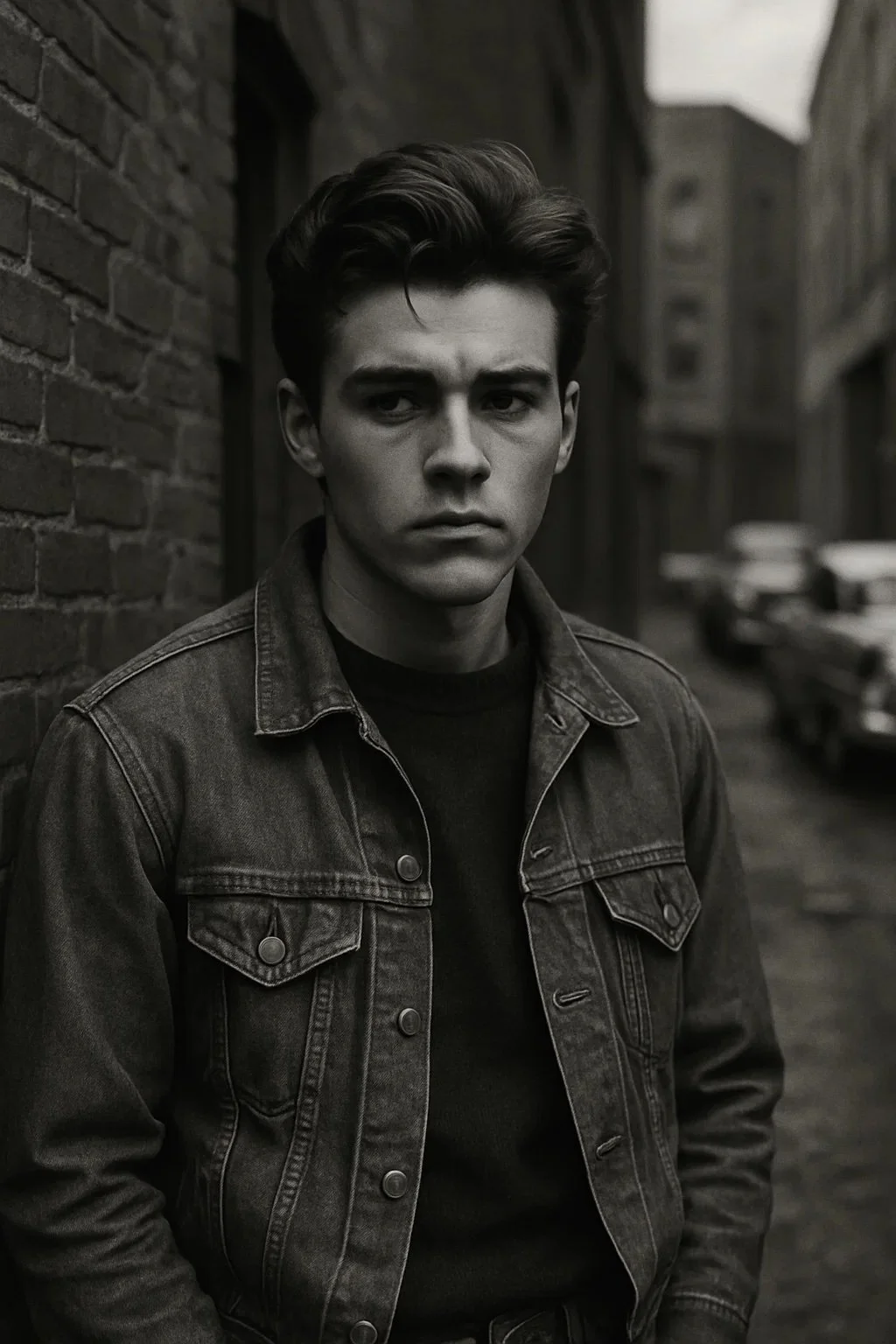The Shaman Before the Storm
Before the lights, before the feedback, before The Get Quick became a name whispered in backroom séances and record store basements — there was Joshua Hamish Major, the gaucho shirted surveyor of the 1950s teenage mindscape, sketching constellations on café napkins and talking in riddles that somehow always made perfect sense over black coffee and comics the next morning.
He was not a rock star. He was something else entirely — a wandering oracle in a boho waistcoat, born under a waxing moon and seemingly stitched together from torn pages of Rimbaud, Sun Ra, and the Whole Earth Catalog.
In later years, the band, in all their psychedelic swagger and feedback-flecked fury, never failed to cite him — right alongside the obligatory Blake, Yeats, and Screamin’ Jay Hawkins — as a foundational axis of their strange and luminous orbit.
Erik met him in art school, but it could’ve just as easily been a mountaintop in Nepal or a blues shack in Memphis — for by then Josh had already been everywhere worth going. Two years he’d spent roaming across continents like some vagabond troubadour, hitchhiking through France on a diet of baguettes and Baudelaire, trading harmonica riffs in Mississippi juke joints, crashing on rooftops in Tangier, sketching dreams in the margins of Metro maps.
He was older than Erik, in both years and wisdom, and he opened the younger man’s head like a blooming lotus. The I Ching, Alan Watts, Kerouac, the ghosts of Dada and Delta bluesmen, and the sacred chaos of pure improvisation — these things flowed from Josh like smoke from an incense burner, heady and disorienting, but deeply, utterly necessary.
His stint with The Get Quick was like a comet: brief, brilliant, and impossible to forget. He didn’t stay long — the wind called him elsewhere, and Josh was never one to argue with cosmic forces. Only a smattering of recordings remain, dusty talismans buried in the archives, but there are traces of him all over the place: in the band’s earliest experiments, in their irreverent approach to structure, in the way they still chant his aphorisms before studio takes — half in-joke, half invocation.
And though he vanished before the headlines and the hexes, his spirit never quite left. Josh Major wasn’t just an influence — he was an operating frequency, a wavelength to tap into. The quiet note beneath the distortion. The hush before the howl. A secret ingredient in the band’s chemical makeup that they’ve carried with them all this way.
“We think of time as a one-way motion,” — Alan Watts
— Mark Question, 2007
